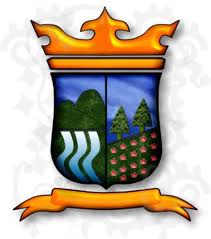
Santo Domingo.- The Dominican Republic and Haiti maintain their positions on constructing the controversial canal bordering the Masacre River. This Friday marks a week since Santo Domingo closed all borders with the neighboring country, generating significant economic damage to both parties.
Meanwhile, along the dividing line, calm reigns, including the main border crossing point, Dajabón (northwest of the Dominican Republic), where, in statements to the media, the general commander of the Dominican Army, Major General Carlos Antonio Fernández Onofre, assured Friday that the border is calm and controlled and that there are no threats.
Distant positions and few possibilities of dialogue Since 06-00 local time on September 15 (10-00 GMT), when the Dominican Republic closed the land, sea, and air borders with Haiti, with the consequent blockade of bilateral trade, there has been no progress and the positions have become more distant.
While at the beginning of this crisis, the Haitian government dissociated itself from the project, a private initiative without official support, now the executive branch affirms that work on the controversial canal must go ahead and has decided to support it.
“Yes, the canal must be built. Yes, efforts must be made so that the water reaches the canals as it should. Yes, it is through solidarity and unity that the land of (the Maribahoux plain) can be irrigated,” said the Ministry of Agriculture on Thursday on behalf of the cabinet, which defends the right of “Haiti to benefit in a balanced way from the resources it shares with its Dominican neighbor.”
For all these reasons and given the Dominican government’s demand that the works must be stopped before sitting down to talk, the resumption of the bilateral talks does not seem close. A dialogue was interrupted on Thursday, September 14, when the Dominican President, Luis Abinader, announced that the borders would be definitively closed the following day when the Binational Commission was meeting in Santo Domingo to resolve the situation through dialogue.
The Dominican Executive, which considers that the canal violates bilateral treaties, puts as a condition for this dialogue that the “illegal transfer” of water by “a small group of Haitian individuals (…), a small economic-political elite to profit” from the sale of water to small producers in the area, as Abinader reiterated last Wednesday in his speech before the General Assembly of the United Nations.
Massive departure of migrants and blocked trade
While there is no rapprochement, the works of the canal are advancing, and thousands of Haitians leave the Dominican Republic every day and return to their country despite the acute crisis and the extreme violence being experienced there at the hands of the armed gangs that control a large part of Port-au-Prince and other areas of Haiti.
Although there are no official figures, the scene is repeated daily of numerous people waiting with their belongings for the temporary opening of the border posts, especially Dajabón, to leave Dominican territory. In addition, Haitians in an irregular situation are deported.
The other significant effect of the border closure is the dynamic trade between the two countries, especially in places close to the border where, until now, bilateral markets were held several days a week where Haitians and Dominicans exchanged all kinds of products.
This entails heavy losses for traders and producers in the area. The Dominican Government has adopted measures to minimize the consequences, such as debt restructuring, granting zero-rate loans, marketing by official agencies of products not being sold, or distributing rations in economic canteens to take advantage of the food and prevent it from spoiling.
Some negative impacts for both parties were warned at the time by the United Nations expert for Human Rights in Haiti, William O’Neill, who asked the Dominican Republic to reconsider the border closure, a measure that Abinader announced would be maintained “as long as necessary.”
But above all, the most affected will be the Haitian population, with 43% suffering from food insecurity and almost 50% needing humanitarian aid.






